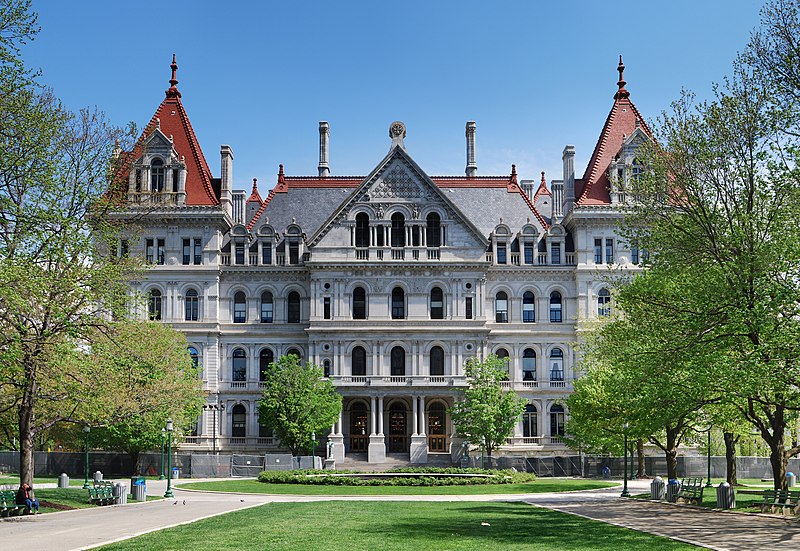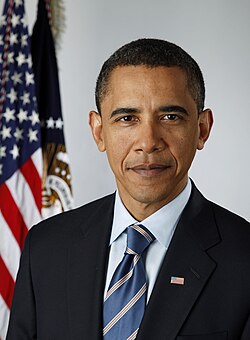 |
| New York State Capitol, Albany (wikipeida) |
Somehow despite these insurmountable odds, however, New York has snagged the brass ring of gay politics: marriage equality. In most of New England and the Northeast, laws exist to protect gays and lesbians from discrimination at the workplace. While the transgender rights remain controversial (even among some in the gay community), largely legal rights are about as secure in this part of the country as they can get, save marriage equality (before New York only four out of ten states from Maine to Maryland allowed same-sex marriage). That is perhaps what made New York's achievement, done with the support of four Republicans, so much more impressive. The New York Times described how Gov. Andrew Cuomo, widely seen as a potential 2016 presidential candidate, fought for the issue, even playing to right-leaning Republican donors on the basis of personal freedom.
 |
| N.Y. Gov. Andrew Cuomo (wikipedia) |
Indeed at this point, opposition to same-sex marriage, although sincere on the part of many, has become a political game. In Minnesota, it seems as if putting on the ballot a Constitutional amendment banning the practice is more intended to drive up conservative turnout in what will be a tough reelection campaign for many in that State House. In New Hampshire, the tea party controlled legislature made a move to repeal marriage equality there, but backed off when they realized it a) ran afoul of their own notion on liberty and exposed them for being insincere on the topic and b) repeal lacked considerable support. Indeed, when the measure originally passed the then Democratic-controlled legislature, the governor a Democrat did not openly support it. However, he signed it in the end. That governor, John Lynch, remains the governor the red tide notwithstanding.
Some time ago, this blog openly questioned how important the term "marriage" was. Our sense was that it was impossible, largely from an etymological point of view, to fully disconnect the religious and therefore male/female requirement of marriage. We were in favor of all of the same rights, but the separate terms. However, we found legislative avenue for marriage equality far preferable to judicial ones in most circumstances. While that belief at the time was appropriate, it has been superseded by other, larger concerns. They are not the "separate but equal" argument, but rather the impact homophobia generally has on younger people (or any people for that matter) either certain or uncertain about their sexuality.
This epiphany, came about after the spat of teenage and twenty-something suicides last year, largely among those who were gay or bullied for seeming so. Mental health notwithstanding, this kind of bullying, teasing or harassment is simply unacceptable. Even if young people do not kill themselves, they are exposed to depression, isolation or other unfortunate fates. Efforts like Dan Savage's "It Get's Better" project offers hope for young people, but a broader societal acceptance is in order. We would not tolerate overt racism or antisemitism directed at a black or Jewish student and so neither we should tolerate harassment directed gay youth as well. In effect, marriage equality may have an effect, along with the repeal of DADT, of mainstreaming an intolerance for harassing young people because they are or seem gay. The definition of marriage, whatever its roots, is an acceptable casualty if it may lead to less suicides and fewer incidents of harassment of young people.
 |
| Pres. Obama (wikipedia) |
Even as the 538 blog's Nate Silver compares Andrew Cuomo's political bravery with Barack Obama's, there may be some reason why Obama has stuck with his "evolving" stance, however passe. First of all anybody with a brain must know that Barack Obama supports same-sex marriage. The question is whether or not he will come out of the closet on the issue. However, practically speaking, the president coming out for gay marriage may feel good, but it will not fundamentally change the fact that this particular progress can only be made on the state level. Moreover, there are other things that president can, and should be doing to further gay rights that would be far more practical than "coming out" on marriage.
 |
| Chaz Bono (wikipedia) |
Another bone of contention is the Defense of Marriage Act. That law, passed with Pres. Bill Clinton's signature in 1996, did two things. The first part essentially cemented the right of states to make their own decision on marriage. In other words, a federal judge in Alabama could never rule that that state has to recognize a same-sex marriage from Massachusetts under full faith and credit because Congress essentially ceded full discretion to the states.
The other feature is currently under review in the courts. That section said that as far as the feds were concerned marriage could only be between a man and a woman. This is the only section challenged in court, particularly in two cases originating in Massachusetts. One was filed by Martha Coakley, the other was an independent action. US Attorney General Eric Holder, with Obama's approval, did the legally correct thing by announcing they could not defend the law without arguing the discrimination had a compelling state interest. Since DOMA had been passed before more recent Supreme Court jurisprudence on gay rights, the Justice Department's defense of the law could itself be ethically as well as politically damaging for the AG and the president. Of course repealing the section in DOMA would be ideal.
Arguably, Obama is avoiding both the marriage issue and even ENDA while the debt negotiations are going on. However, he would be wise to take up the latter because the marriage equality front will seem all the less important if people cannot keep their jobs simply because they are gay. There are inklings that President Obama may be considering how to "come out" on marriage equality as well, but without appearing to distract from the economy by using social issues that please his base.
 |
| The Stonewall Today (Wikipedia) |
As this process speeds up, there will be undoubtedly be more pressure for Congress to submit a federal Constitutional amendment to the states for ratification. New York's vote as much as anything assures that there will never be 67 Senators let alone 2/3 of the House to pass such an amendment. Already Republican presidential candidates are trying to walk a fine line between their states' right garbage with support for a Federal Constitutional ban on same-sex marriage. Given that arithmetic will eventually never support the latter, such a position either indicates pandering or an unstated willingness to compromise their states' rights position. Indeed, the junior Senator from New York, Kirsten Gillibrand, herself a major advocate of marriage equality, may be more than enough to stop that.
Massachusetts' role cannot be overlooked as well. The impressive thing is not that the Supreme Judicial Court ruled as it did in Goodridge v. Dept. of Public Health. Rather it is that the electorate shrugged after it became clear the issue would not go to voters and more politicians "came out" themselves in support of marriage equality like Gov. Deval Patrick.
Massachusetts' role cannot be overlooked as well. The impressive thing is not that the Supreme Judicial Court ruled as it did in Goodridge v. Dept. of Public Health. Rather it is that the electorate shrugged after it became clear the issue would not go to voters and more politicians "came out" themselves in support of marriage equality like Gov. Deval Patrick.
 |
| Empire State Bldg after Vote (Moveon.org) |
Today is New York City gay pride parade. The gay community in New York and their allies have more to be proud of more than just the fact of their being. They can take pride in cementing America's march toward justice for all its citizens.






No comments:
Post a Comment